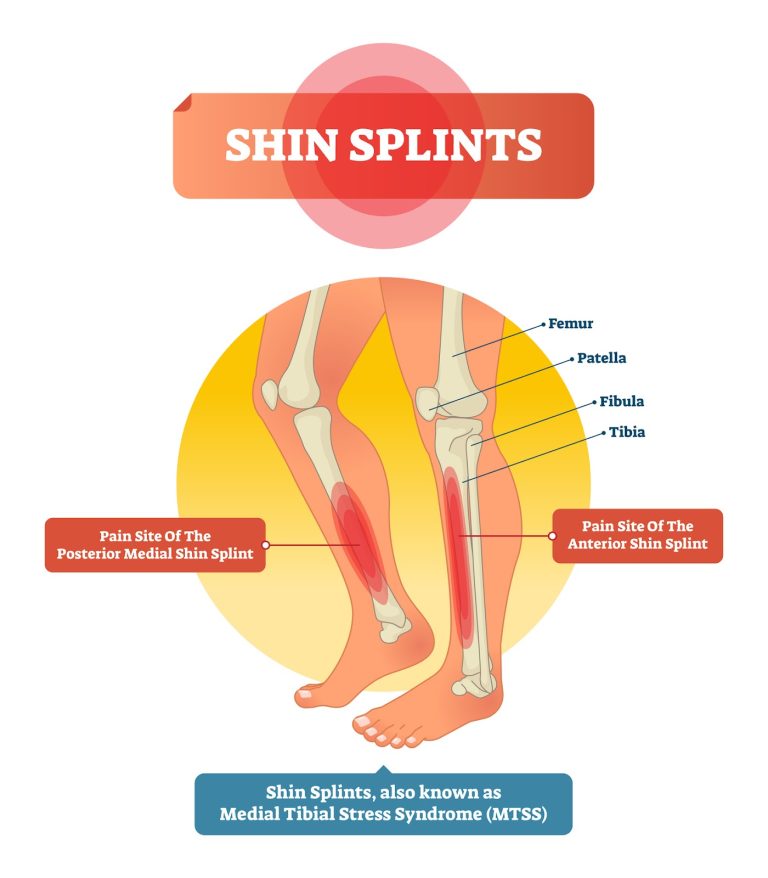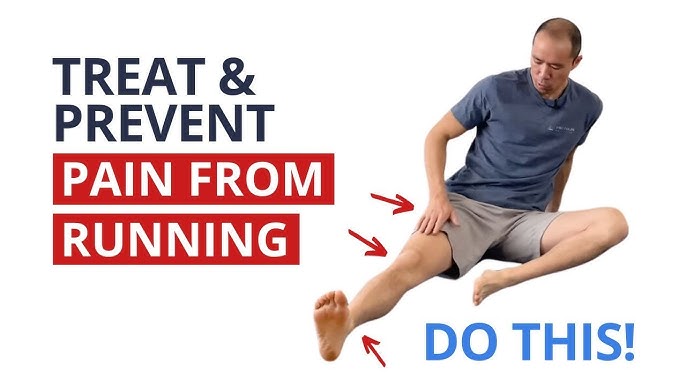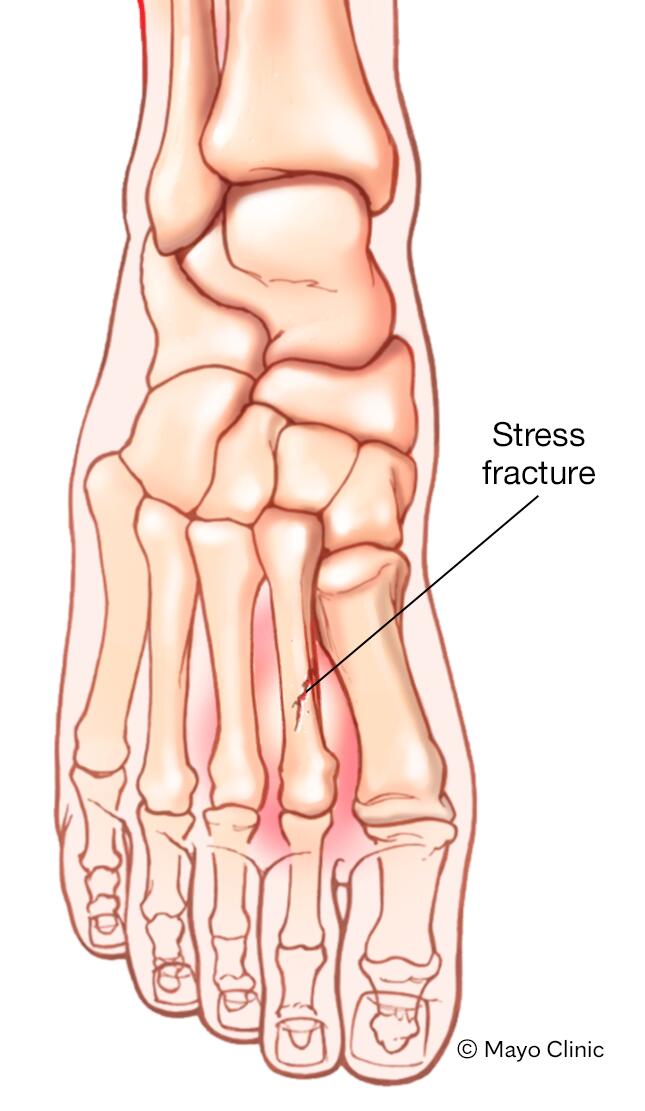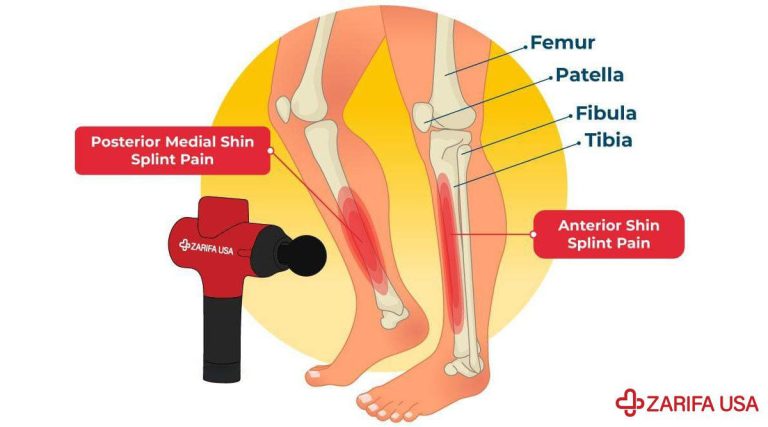How To Not To Lose Muscle Mass While Marathon Training
To maintain muscle mass while marathon training, focus on adequate protein intake and strength training exercises. By prioritizing protein and resistance training, you can preserve muscle mass during intense endurance training.
As you increase your running mileage and endurance activities, it’s crucial to support your muscles with the right nutrition and exercise regimen to prevent muscle loss. This balance is key to optimizing performance and preventing fatigue or risk of injury as you train for a marathon.
By incorporating these strategies into your routine, you can achieve your fitness goals while maintaining muscle mass and strength throughout your training journey.

Credit: runnersconnect.net
Importance Of Maintaining Muscle Mass
Maintaining muscle mass while training for a marathon is crucial to avoid muscle loss. By incorporating strength training exercises and consuming adequate protein, you can preserve muscle mass and optimize performance during long-distance running.
Maintaining muscle mass is vital during marathon training as it helps in sustaining strength, preventing injuries, and preserving metabolism. By focusing on retaining muscle mass, runners can enhance their overall performance and endurance while preventing potential setbacks that may arise from muscle loss. This article will delve into the benefits of maintaining muscle mass during marathon training and provide effective strategies to minimize muscle loss.Benefits Of Maintaining Muscle Mass During Marathon Training
Retaining muscle mass contributes to improved running efficiency and overall performance. Stronger muscles enable runners to maintain a steady pace throughout the marathon, leading to better race times and endurance.
Maintaining muscle mass aids in stabilizing joints and supporting the body’s skeletal structure, reducing the risk of common running injuries such as strains and sprains. Strong muscles act as protective mechanisms during the high-impact nature of marathon training.
Having a higher muscle mass supports a healthy metabolism, which is essential for efficiently converting nutrients into energy. Preserving muscle mass during marathon training prevents the metabolic slowdown that often accompanies prolonged cardiovascular activities.
Muscle mass retention ensures that runners maintain the strength and stamina required to complete the rigorous demands of marathon training. Strong muscles enable runners to power through long-distance runs, inclines, and various terrains effectively.
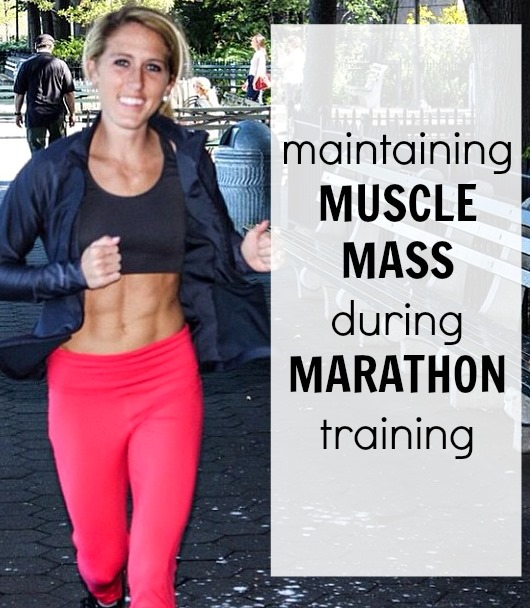
Credit: www.runtothefinish.com
Proper Nutrition For Muscle Preservation
Proper nutrition plays a crucial role in preserving muscle mass while training for a marathon. Understanding the importance of consuming adequate protein and carbohydrates is key to maintaining muscle integrity throughout your training.
Importance Of Consuming Enough Protein
Eating sufficient protein is vital for preserving muscle mass during marathon training. Protein provides the essential building blocks necessary for muscle repair and growth. Aiming for 1.2-2.0 grams of protein per kilogram of body weight daily can help prevent muscle breakdown and support recovery.
The Role Of Carbohydrates In Muscle Preservation
Carbohydrates are essential for maintaining energy levels and muscle glycogen stores during intense training. Consuming complex carbohydrates like whole grains, fruits, and vegetables ensures a steady supply of energy for your muscles. Including carbohydrates in each meal supports muscle preservation and performance.
Effective Strength Training Strategies
Maintaining muscle mass while marathon training is crucial. Effective strength training strategies such as incorporating resistance exercises, focusing on compound movements, and ensuring adequate protein intake can help prevent muscle loss. By implementing these strategies, individuals can optimize their training and minimize the risk of muscle loss during marathon preparation.
Incorporating Resistance Exercises Into Your Training Routine
Effective Strength Training Strategies are crucial to prevent muscle loss during marathon training. To maintain muscle mass, incorporate resistance exercises in your routine.
- Start with bodyweight exercises like squats, push-ups, and lunges.
- Progress to using resistance bands or weights to challenge your muscles further.
- Focus on all muscle groups to ensure balanced development and reduce the risk of injuries.
Focus On Compound Exercises For Maximum Muscle Retention
Compound exercises involve multiple muscle groups working together and are efficient for retaining muscle mass. Prioritize these exercises in your strength training regimen.
- Include movements like squats, deadlifts, bench press, and pull-ups.
- Engaging in compound exercises activates a greater number of muscle fibers, promoting muscle retention.
- These exercises also boost overall strength and performance during marathon training.

Credit: marathonhandbook.com
Optimizing Recovery And Rest
Optimizing recovery and rest is pivotal when it comes to preventing muscle loss during marathon training. Understanding the importance of rest days, practicing adequate sleep, and managing stress play a crucial role in helping athletes maintain muscle mass while preparing for a marathon.
Understanding The Importance Of Rest Days
Rest days are not a sign of weakness, but rather a strategic approach to allow the body to recover and rebuild. Regular rest days help in preventing overtraining, which can lead to muscle breakdown. It’s essential to incorporate rest days into the training schedule.
Practicing Adequate Sleep And Stress Management
Adequate sleep helps the body repair and grow muscles. Managing stress is equally important, as high-stress levels can lead to the release of cortisol, a hormone that can contribute to muscle breakdown. Stress management techniques, such as meditation or yoga, can aid in maintaining overall well-being and muscle preservation.
Balancing Cardiovascular Training And Resistance Training
When it comes to marathon training, many runners are concerned about losing muscle mass. However, finding the right balance between cardiovascular training and resistance training can help minimize muscle loss and maximize performance. Integrating cross-training activities into your routine is also essential. Let’s explore how you can maintain muscle mass while training for a marathon.
Finding The Right Balance Between Running And Strength Training
To prevent muscle loss while marathon training, it is important to strike a balance between your cardiovascular workouts and strength training sessions. While running is crucial for improving your endurance, neglecting strength training can lead to muscle breakdown. Incorporating resistance exercises into your training plan will help maintain muscle mass and enhance your running performance.
Here are some tips to find the right balance:
- Schedule your workouts strategically to allow for recovery between running and strength training sessions.
- Try to allocate specific days or times for each type of training to avoid overtraining or neglecting either aspect.
- Consult with a fitness professional to design a program that suits your individual needs and goals.
- Gradually increase the intensity and duration of both your running and strength training sessions to avoid over-exertion.
Integrating Cross-training Activities To Minimize Muscle Loss
Including cross-training activities in your weekly routine can help minimize muscle loss during marathon training. Cross-training involves engaging in different forms of exercise that complement your running workouts. Here are some cross-training ideas to consider:
- Swimming: This low-impact activity helps maintain cardiovascular fitness while giving your muscles a break from the impact of running.
- Cycling: Whether outdoors or on a stationary bike, cycling strengthens different muscle groups while providing an excellent cardiovascular workout.
- Pilates or yoga: These activities improve flexibility, core strength, and overall body awareness, which can benefit your running form and prevent muscle imbalances.
- Rowing: Rowing machines provide a full-body workout and help build both cardiovascular endurance and upper-body strength.
By incorporating a variety of cross-training activities into your training plan, you can give your running muscles some relief while simultaneously engaging different muscle groups. This cross-training approach will contribute to maintaining overall muscle mass.
Remember, the key to preventing muscle loss while marathon training is finding the right balance between cardiovascular training and resistance training. By implementing a well-rounded training routine that includes strength exercises and cross-training activities, you can ensure that your muscles stay strong and resilient throughout your marathon journey.
Frequently Asked Questions On How To Not To Lose Muscle Mass While Marathon Training
How Can I Preserve Muscle Mass While Marathon Training?
To preserve muscle mass while marathon training, focus on resistance training and a balanced diet to support muscle growth.
Why Is Muscle Mass Loss Common During Marathon Training?
Muscle mass loss can occur during marathon training due to long endurance workouts and inadequate protein intake.
What Are The Best Exercises To Maintain Muscle Mass During Marathon Training?
Incorporate strength-training exercises such as squats, lunges, and deadlifts to maintain muscle mass during marathon training.
Conclusion
Maintaining muscle mass during marathon training is crucial for overall performance and injury prevention. By incorporating strength training, adequate protein intake, and sufficient rest, athletes can minimize muscle loss and maximize performance. Balancing cardio workouts with strength training is vital for achieving the best results and staying in peak physical condition.


